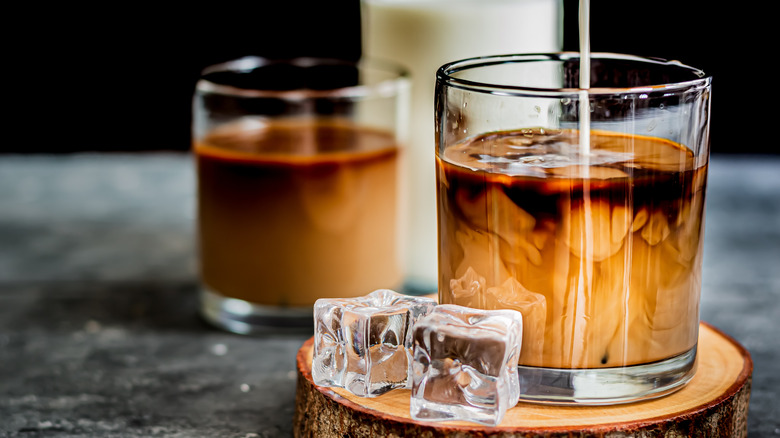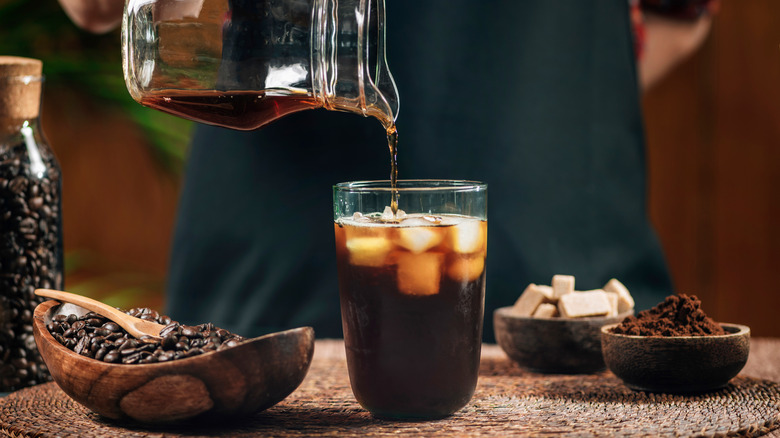Laser Coffee Gives Cold-Brew A Super-Speed Upgrade
Do you know what "picosecond-pulsed laser extraction" means? Not exactly? Don't worry, neither did we, but now we do, and we're here to enlighten you — it just might mean the new and improved gateway to delicious cold brew coffee. A team of scientists from Germany's Universitat Duisberg Essen (UDE) set out to research the cold brewing process and how it can be made better. The group then published their findings in the journal "Nature." Whether you're a caffeine addict or you just drink the occasional cup here and there, it's hard to deny that the new method of preparing cold brew coffee could potentially revolutionize the whole industry one day.
Cold brew has a lot to offer coffee aficionados. As the perhaps less popular sibling of iced coffee, it serves a different purpose than most of the sugary caffeinated iced drinks we've grown accustomed to. Many enthusiasts swear by cold brew because of its allegedly superior taste, drastically lowered acidity, and ease of access. Some sources claim that cold brew has up to 70% less acidity than hot coffee, and while it's generally accepted that it has lower acidity, the exact numbers vary between studies. As an example, researchers from Thomas Jefferson University and Philadelphia University found that the difference in pH levels wasn't massive — all coffee samples were within the same range of 4.85 to 5.13.
Aside from the acidity debate, many people simply love the taste of cold brew, which is exactly why they turn to it, be it at coffee shops or at home. There's one major problem with cold brew, though — it takes ages to make, ranging from 12 to 24 hours. However, if the scientists from UDE are correct, it might be about to become a lot quicker.
The brewing time was drastically reduced
The research team described the process of laser-brewing coffee in great detail, but we'll attempt to break it down into something slightly easier to digest (much like actual cold brew coffee). In order to speed up the brewing process, the researchers utilized a special kind of laser and adjusted its settings down to the picosecond, which means one trillionth of a second. The laser performs 125-picojoule pulses which last just 10 picoseconds. All of this goes through a mix of ground coffee and water for about three minutes, many, many times over — as much as 80,000 times per second, in fact. This seems to replace the ultra-long method of cold brewing that is currently in use.
In order to accurately measure their own success, the researchers filtered the solution that they produced and then compared it to a proper 24-hour cold brew as well as a traditional hot cup of joe. The resulting finds are highly promising. The so-called laser brew had almost the same acidity as the 24-hour cold brew, and both of them were significantly less acidic than regular hot coffee. In terms of caffeine levels, laser coffee was closer to hot coffee than it was to cold brew, which can often retain more caffeine and trigonelline than its warmed-up counterpart. However, it's possible to make laser coffee more flavorful and higher in caffeine by brewing it for a few more minutes, the scientists say.
The team has high hopes for commercialization and plans to work on laser-extracted coffee systems that could later be used in coffee shops and various other places. Perhaps the next time you pick up a cold brew at a café (in a good few years, mind you), it will have been made by a laser.

